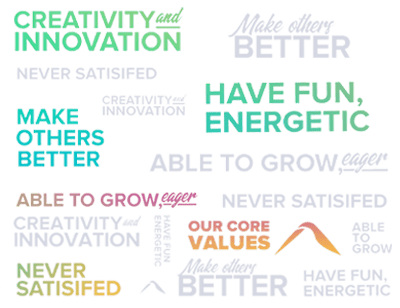Summary
Gone are the days when Customer service was just a department in any organization. Today, customer service is the groundwork strategy for a world-class organisation. An ordinary service can be revolutionised by organisations when they prioritise customer retention over acquisition, focus and invest in enhancing the skill set of the agents, and nurturing organisational service-ability.
Key Insights
- Prioritizing Retention over Acquisition
- Propelling growth through Customer Service
- Skill enhancement of Agent
- Measure, Upgrade & Expand
- Specific, reinforced vision for Customer Service
Introduction: The Significance of Customer Service for Business Growth
Exceptional customer service is the soul of long-term business development. It’s a robust strategy capable of delivering great results. In a dynamic market that is overflowing with choices, experiences are remembered by customers more than products. When a buyer receives a solo positive interaction that makes them feel valued and acknowledged, it turns into a lifetime brand advocate.
As per Fortunly data in Customer Service Statistics, 90% of consumers are impacted by customer service reviews when they decide to buy something.
Customer Retention vs. Acquisition: what matters more and why?
The best way for organisations to grow revenue is by steadily acquiring new customers, the primary focus of their business development, sales, and marketing teams. But another equally crucial factor for expanding your business is retaining and holding existing customers happy. A customer who buys from you repeatedly is much more valuable than a customer who buys from you once.
According to Bain & Company’s report The power of online customer loyalty and how you can capture it– Focusing on retaining existing customers is more beneficial as companies that prioritize customer retention over acquisition are 60% more profitable
The Propellants for Retention and Business Success: Exceptional Customer Service
So, how does one go about this? One of the imperative elements in retaining customers and turning them into potential promoters is outstanding customer service. No matter how good your product is, if your customer support is shoddy, your customer’s experience and satisfaction are bound to suffer, which concerns your probabilities of retaining the customers.
In other words, good customer support equals good customer experience, which equals good retention and growth.
As per PwC’s survey report-Experience is everything. Get it right.– In the United States, 32% of customers would quit doing business with a brand after one bad experience, even of once they have loved the brand
Developing a Support Team That Wins Customers and Amplifies Your Brand
As per Capgemini’s research report-Unleashing the value of customer service-The transformative impact of Gen AI and agentic AI– where around 9,500 consumers, 500 agents and supervisors, and 1,000 executives from across the globe were surveyed[i]. It was found that-
- Customer service was considered very/extremely important by 58% of consumers when they established a general perception of a brand.
- 65% of consumers recommend a brand to family and friends after a good customer service.
- 55% of consumers say they will turn into repeat customers if they are happy with customer service.
Learn the Craft of Inducting a Customer Support Team That Customers Adore
So, you should consider getting one if you don’t have a dedicated customer support team. For those organisations that do have a dedicated support team, here are a few essential skills that you need to ensure your agents possess to deliver a good customer service support experience:
- Product Knowledge: Your agents must be up-to-date and thoroughly aware of all your products and services. Nothing can be more frustrating for a customer than calling customer support only to be transferred multiple times or put on hold while the agents hunt for answers.
As per Review 42’s data, 45+ Thrilling Customer Service Statistics [2024’s Edition]-For 31% of customers, a knowledgeable agent is the most vital factor involved for a positive customer experience
- Patience: A frustrated customer needs time to vent. No matter how angry or unreasonable a customer sounds, your agents must give them a chance to explain their situation in detail. Negatively reacting to an irate customer ends up causing further harm.
- Quickness: Time is of the essence when responding to your customers. Your team needs to be quick in responding to customers. With the increased interconnectivity that the internet provides, many customers have come to expect near-real-time responses to their queries.
More than 60% of consumers feel that waiting on hold for even one minute feels like a lot for them.
This is why it is essential to maintain a quick turnaround time. Using swifter modes of communication, such as live chat and call centre support, can further help you improve your customer service experience. Remember, delays in responding to a customer can lead to decreased customer satisfaction and cost you future business.
- Precision: You must ensure your agents can communicate clearly and concisely to clients. Most people do not have the patience to read a long message or listen to long explanations. Your agents must balance brevity with thoroughness and approachability.
As per Smart Role’s article- The Complete Guide to Modern Call Centre Training in 2025-73% of customers expect that agents will resolve their issues in the first contact.
- Empathy: An agent who can empathise with a customer will be likelier to satisfy the customer than one who cannot. Customers need reassurance, especially when frustrated, and want to feel that they’re conversing with someone, not a feeling-less robot. Additionally, more minor gestures that show consideration and respect for customers can help improve good customer service. One example of such a gesture is Amazon’s policy of refunding the price change on recently purchased items.
- Adaptability: Each customer interaction is different. Your agents must adapt to various customer problems, demands, technical issues, and more. This ensures they are ready for every eventuality and continue to satisfy your customers.
As per Sales Group data in the Top 150+ Customer service statistics & Trends [2025], 72% of customers still choose assisted service from live agents for complicated problems.
- Initiative: Good service keeps customers satisfied but doesn’t necessarily convert them into promoters. Going the extra mile can make that difference. While not mission-critical, being willing to take initiative and go out of the way to help customers is a vital skill for an agent. Agents who do this delight customers, converting a merely ‘satisfied’ customer into a possible promoter.
- Measure, Benchmark, Enhance & Maximize Customer Support to Enhance CX
What we need to understand here is that merely instilling these skills is not sufficient. You need to monitor your NPS and customer satisfaction results frequently. You are required to observe all communications to notice if there is scope for advancement elsewhere. Only by carrying a proactive approach towards customer satisfaction can you continue to grow, specifically in today’s highly competitive marketplace.
According to Sobot’s article Never Ignore CSAT in Call Centres Again– Companies that focus on monitoring CSAT witness a 35% improved rating and a drop of 40% in the churn rates.
How Bill Gosling Outsourcing Can Help
However, managing this internally can be challenging, so Bill Gosling Outsourcing (BGO) is here to assist. With a broad product suite offering you everything – from cutting-edge Speech Analytics services to BPO services and consulting, BGO can help you comprehend customer grievances better and provide top-notch customer support, paving the path for enhanced customer satisfaction.
Frequently Asked Questions About Revolutionizing Customer Service
1. Why is customer service now considered a strategic priority?
Customer service has evolved from a support function to a core growth strategy. Exceptional service leads to:
- Increased customer retention
- Enhanced brand loyalty
- Positive word-of-mouth and recommendations
According to Bain & Company, companies focusing on retention over acquisition are 60% more profitable :contentReference[oaicite:0]{index=0}.
2. What role does customer retention play in business success?
Retaining existing customers is more cost-effective than acquiring new ones. Loyal customers:
- Generate repeat business
- Provide valuable feedback
- Act as brand advocates
Prioritizing retention can lead to sustained business growth and profitability.
3. How can organizations enhance their customer service?
Organizations can improve customer service by:
- Investing in agent training and development
- Implementing efficient support systems
- Regularly measuring customer satisfaction
- Adapting to customer feedback and changing expectations
These steps ensure a responsive and customer-centric approach.
4. What are the key qualities of a high-performing customer support team?
A successful support team should possess:
- Empathy and active listening skills
- Clear and concise communication
- Problem-solving abilities
- Product knowledge
- Adaptability to various customer needs
These attributes contribute to positive customer experiences and satisfaction.
5. What common mistakes should businesses avoid in customer service?
Businesses should be cautious of:
- Long response times
- Inconsistent service across channels
- Inadequate agent training
- Neglecting customer feedback
- Lack of personalization in interactions
Avoiding these pitfalls helps maintain high service standards and customer trust.




